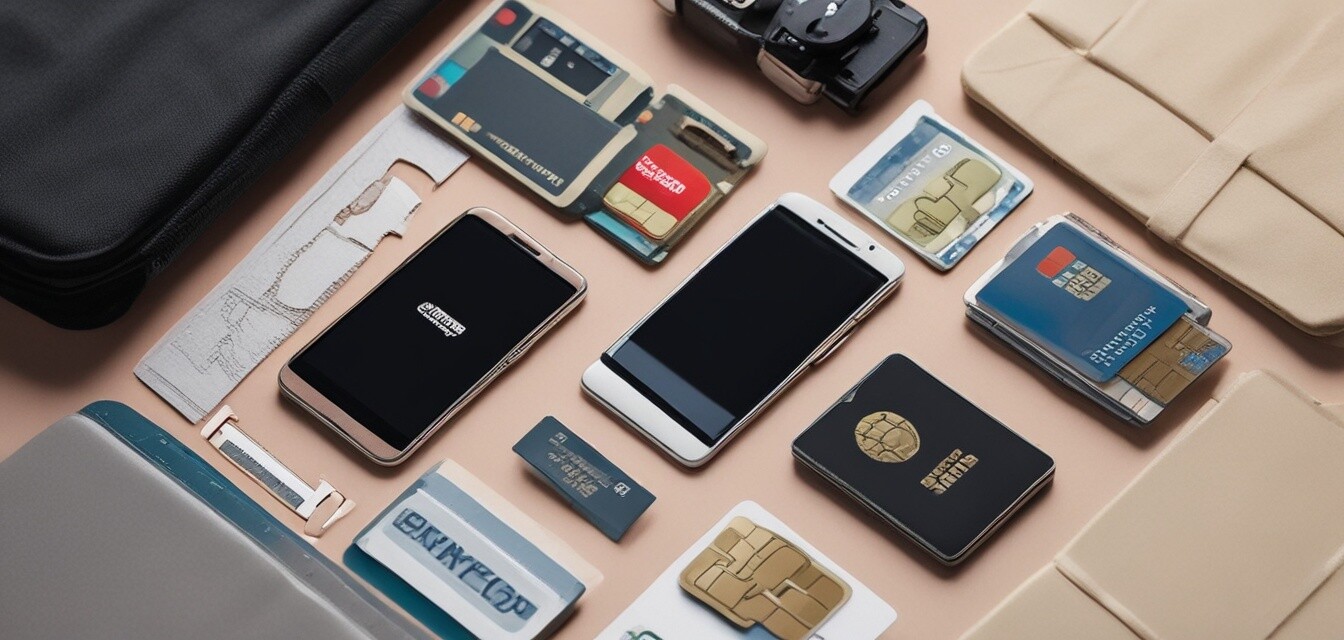
Choosing the Right SIM Card for Your Smart Device
Key Takeaways
- Understanding device compatibility is crucial for selecting the right SIM card.
- Different SIM card types cater to various network provider specifications.
- Prepaid plans can offer flexibility for international travel.
- Consider using SIM card organizers to keep multiple SIM cards neatly arranged.
- Researching local carriers can often maximize your data options abroad.
Choosing the right SIM card for your smart device can be the key to staying connected while traveling or using your device. With a wide variety of options available, it's essential to understand your device's specifications and compatibility. In this guide, we will break down what you need to consider and how to make the best choice.
Understanding SIM Card Types
SIM cards come in various forms, each designed to fit specific devices and carrier requirements. Let's take a closer look at the different types of SIM cards:
| SIM Card Type | Description | Usage |
|---|---|---|
| Standard SIM | The largest SIM format, mostly used in older mobile devices. | Good for basic phones and older technology. |
| Micro SIM | A smaller version of the standard SIM, popular in many smartphones. | Compatible with many popular smartphone models. |
| nano SIM | The smallest format currently available, used in most modern devices. | Ideal for latest smartphones like iPhone and Android devices. |
| eSIM | A digital SIM that allows you to activate a cellular plan without a physical SIM card. | Great for devices that support it, reducing the need for physical cards. |
Check Your Device Compatibility
Before purchasing a SIM card, it's important to verify that it is compatible with your device. Here are some steps to help you:
- Consult your device specifications to check which SIM card type it requires.
- Look at your device's network compatibility. Some devices may be locked to specific carriers.
- Verify band compatibility with the network in the area you plan to travel. Different countries may use different network bands.
- If possible, check if your device supports dual SIM functionality to enable flexibility.
Benefits of Prepaid SIM Cards
Prepaid SIM cards are often a popular choice for travelers and new users. Here are some advantages:
Pros
- No long-term contracts required.
- Control over spending with no excess charges.
- Accessible in various regions and countries.
- Easy activation and setup process.
Cons
- Some prepaid plans may have limited data options.
- Short-term plans may not cover long stays.
- Activating a local SIM in a different country may be challenging.
Staying Connected Internationally
When traveling abroad, it is vital to stay connected to ensure your journey goes smoothly. Here's what to consider:
- Research local SIM card options to get the best data plans in the regions you will visit.
- Check if your device is unlocked to use foreign SIM cards. Locked devices may not work with new carriers.
- Understand the coverage of the carrier you wish to use, specifically in remote areas.
- Look into travel SIM card kits that offer multiple coverage options.
Organizing Your SIM Cards
For travelers with multiple SIM cards, keeping them organized is essential. Here are some helpful tips:
Beginners Section
- Invest in a SIM card case to prevent loss or damage.
- Label your SIM cards by region or carrier to easily identify them.
- Keep a backup of important numbers and codes related to your SIM cards.
- Consider using a dedicated wallet or pouch for your SIM cards while traveling.
Conclusion
Selecting the right SIM card for your smart device is essential for a hassle-free experience while traveling. By understanding the various SIM card types, checking device compatibility, and exploring your options before traveling, you will ensure that you remain connected during your adventures.